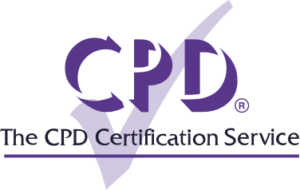In this Youth Workers CPD Guide
Why do Youth Workers need CPD?

A youth worker is a professional who works with young people, typically between the ages of 11 and 18, to support their personal, social and educational development. They may work in a variety of settings, such as schools, community centres, youth clubs or residential homes. Youth workers aim to engage young people in positive activities and help them to build skills, self-confidence and resilience. They may also provide advice, guidance and advocacy on issues such as education, employment, health and relationships. Youth work is a rewarding and challenging career that requires a range of skills, including communication, leadership, creativity and empathy.
To be a successful youth worker, one should possess various qualities and skills. Firstly, strong communication skills are essential to effectively communicate with young people and build positive relationships. A youth worker should also have strong organisational skills to plan and coordinate events and activities. It is important to be passionate about working with young people, and to have patience and empathy to understand their unique needs. Flexibility and adaptability are also key, as each young person may have different challenges and require individualised support.
What our customers have to say
Dan King
Mobilisation, Training & Performance Manager

Sophie Aiken
HR Manager

Harriet Lee
Retail Recruitment Manager

What CPD courses do Youth Workers need?
Children and young people go through numerous development changes and identity transformations as they transition to adulthood. Therefore, a youth worker requires extensive knowledge of the different types of difficulties that a young person may face during this time. Having an understanding of this knowledge can better place them to provide meaningful support during a challenging life stage.
Some examples of courses we offer that are well suited to a youth worker include:
- Adolescent Mental Health Awareness – this course will also explore the types of mental health problems and the signs of each of them. It will explore disorders and issues that are prominent in this age group and consider the negative coping patterns that adolescents may indulge in to deal with the feelings they’re experiencing. We will also explore the causes of mental health problems in detail, as well as look at how issues can escalate. Finally, we’ll review how adolescents with mental health issues should be supported, as well as explore possible treatments.
- Child Criminal Exploitation and County Lines – in this course you will learn about child criminal exploitation (CCE) and county lines, including definitions for these terms, statistics, myths, dangers and early interventions used for these children. You will also cover the signs and risk factors related to this, as well as relevant legislation. You will also look at how to support and talk to victims, potential victims and their families. You will also learn about the terminology normally associated with this topic, as well as some slang that may be used in regard to this as well.
- Child Sexual Exploitation – it is important that anyone who works with children is aware of what child sexual exploitation is and how to notice that a child could be at risk of sexual exploitation. On completion of the course students will feel they have more knowledge on child sexual exploitation and how to look after children who are in their care.
- LGBTQ+ Awareness – this course is for anyone wanting to know the up-to-date laws and legislation around LGBTQ+ itself. You will learn the importance of language and terminology in relation to minority groups and how the ways in which people are referred to and portrayed can have a significant impact on how they are perceived in society. You will also learn that whilst there are some similarities between bullying and harassment, the two are different, particularly when it comes to legalities.
- Managing Behaviour that Challenges – in this course you will cover the basic needs of children, why it is important that these needs are met and how these can be met. It will also cover the different types of behaviour that challenges and give some examples. Finally, we look at the best ways to set boundaries for children to follow and how this will help with their behaviour.
- Prevent and Radicalisation – it is important for people who safeguard children and young adults to have knowledge on Prevent, as it will help them to spot signs of radicalisation. This course will cover what terrorism is, and what Prevent and British values are, in line with the government’s CONTEST strategy. We will also look at the warning signs of radicalisation and who is at risk, as well as look at the guidance offered for the different sectors, including the Police, Prisons and Schools.
- Safeguarding Children Level 2 – this course is perfect for anyone who works around children as it is important to have a detailed knowledge of how to safeguard them from harm. The units cover all pieces of legislation that relate to safeguarding children as well as also looking at the types of abuse a child can suffer.
- Depression in Children and Adolescents – this course will help increase your awareness and understanding of depression, including the different causes and the signs and symptoms of depression in children and adolescents.
A guide to CPD for Youth Workers
To become a qualified youth worker, training or experience is required in youth work. Additionally, many youth worker roles require individuals to undergo a Disclosure and Barring Service (DBS) check to ensure their suitability for working with young people. There are many pieces of legislation aimed at safeguarding the wellbeing of young people which must be adhered to. Some of the legislation that must be followed includes the Children Act 1989 and 2004, which outlines the responsibilities of local authorities and safeguarding children boards in protecting children from harm, neglect and abuse. Working Together to Safeguard Children guidelines provide a framework for multi-agency working in protecting children and young people. There is also the Equality Act 2010, which promotes equal opportunities and access to education for all young people.
Continuing Professional Development (CPD) can be highly beneficial for youth workers. By engaging in regular training and learning opportunities, youth workers can stay up to date with the latest research and best practices in their field. This can help them to better understand and address the needs of the young people they work with, as well as improve their own skills and knowledge. Additionally, CPD can provide opportunities for networking and collaboration with other professionals in the field, which can lead to new ideas and approaches to youth work.
CPD certificates
No matter which CPD Online College course you choose to enrol on, it will result in you obtaining a CPD certificate when you successfully finish the course. To complete a CPD course with us, you must enrol online, work through the course materials (which are also all online), and complete the end of course quiz. The end of course quiz is a knowledge checker to ensure that you have understood all of the course materials and are ready to be certified with a CPD certificate. You will have your CPD certificate available to download once you have finished the course, and you also have the option to have a hard copy of the certificate.
Logging CPD hours
Logging CPD hours is the process of keeping track of the time that you spend working through CPD training.
This can include the time that you spend on your CPD course, as well as other CPD training activities such as:
- Working with a mentor.
- Job shadowing.
- Conducting online research.
- Attending workshops or conferences.
Keeping a running record of your CPD hours makes it easier in the future if you are ever required to report on the number of CPD training hours that you have completed.
Keeping evidence
Evidence of your CPD can be used to create a portfolio. This can include your logged CPD hours, your CPD certificates, as well as other CPD training activities that you have undertaken. Keeping evidence of CPD is important in your industry so that you have proof to show your regulator what CPD training you have undertaken. Keeping a portfolio can help you to meet industry standards and remain up to date with guidance.
Renewing CPD certificates
CPD certificates stay valid from the moment you are awarded them. However, over time they can become less relevant as legislation and guidance in your industry changes. That doesn’t mean that your CPD certificate will be revoked, but it does mean that you need to refresh your knowledge every now and again. We recommend renewing your CPD certificate every two years to stay on top of industry developments.
























